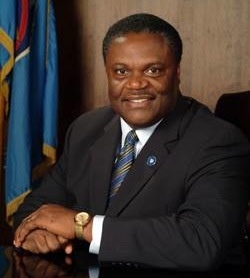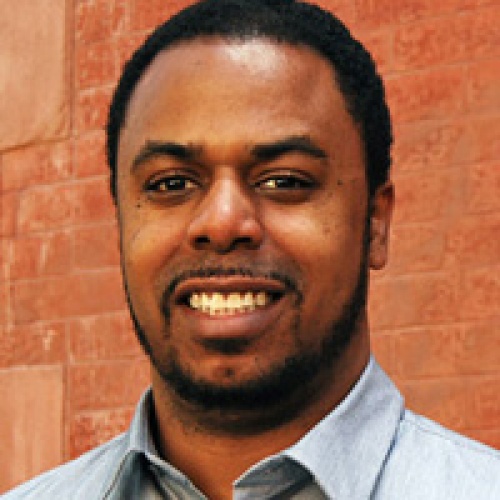Health care law's future at stake in special congressional election for Louisiana

Tomorrow is the special congressional election for Louisiana’s 5th congressional district, a seat vacated when Rep. Rodney Alexander (R) left the House to become Gov. Bobby Jindal’s secretary of the Department of Veterans Affairs in August.
Vying for the post are 14 candidates: five Republicans, four Democrats, two Libertarians, two independents, and a Green. Among the Democrats is Jamie Mayo, the black mayor of Monroe, La. The frontrunner is Republican Neil Riser, currently a state senator, although political analysts say former Republican congressman Clyde Holloway could be a spoiler.
The question is whether Mayo and his fellow Democratic opponents can pull together enough resources and momentum to surprise the nation by turning the district, one of the largest in the state and poorest in the nation, into the Democratic district it appears to be on paper.
Why this matters: the Affordable Care Act (ACA), or what its critics refer to as "Obamacare." Of all of Louisiana's districts, this one has the highest percentage -- 20 percent -- of uninsured residents. Over 11 percent of the district's children are uninsured, twice as high as the state overall, and also over twice as high as the district with the second-highest percentage of uninsured kids, District 1 with 4.9 percent.
All of the Republican candidates running for the seat have gone on the record as favoring repealing or defunding the ACA, while the Democratic candidates are in favor of keeping it. Riser, the leading candidate and Gov. Jindal’s hand-picked choice, has made getting rid of the ACA a centerpiece of his campaign.
Louisiana's 5th District is one of the poorest congressional districts in the nation, encompassing Mayo's home of Monroe and also the city of Alexandria. It slightly tilts urban, but it's roughly 47 percent rural. A third of its residents are African Americans, with the rest mostly white.
Despite the district's designation as "safe Republican" by University of Virginia political analyst Larry Sabato, there are actually almost twice as many Democratic qualified voters than there are Republicans there -- 248,202 Democrats to 133,356 Republicans. As of Oct. 1, there were a little over 240,000 voters registered Democrat as opposed to 132,465 registered Republican.
Last November, 69.2 percent of Democrats and 76.6 percent of Republicans turned out to vote. But independent voters, who make up the remaining 22 percent of qualified voters in the district, have historically helped color the district red.
During the 2010 midterm elections, when the former incumbent Alexander was challenged by independent candidate Tom Gibbs Jr., Alexander soundly defeated him with 79 percent of the vote at 41.8 percent turnout. But Alexander was originally a Democrat when he first won that district in 2002. The state’s Democratic Party hopes they can turn it blue again -- a high hope for the national party, which wants to win back the House next year in order to secure the ACA from ongoing attacks by Tea Party extremists.
"This seat is winnable for the right Democrat," said Kirstin Alvanitakis, communications director for the Louisiana Democratic Party. "Plus, the Republican brand is unmistakably tarnished right now, with the public laying blame for the shutdown on reckless, irresponsible Tea Party Republicans like Rep. Fleming and Rep. Scalise -- who both endorsed Riser, by the way."
Riser is getting help from conservative political action committees -- and he is the only candidate for which a outside spending group has jumped in the race. The Republican Super PAC has spent about $33,000 on ads supporting Riser. Not much is known about the group and it has a short history, having spent over $438,000 on an Oregon race in 2012.
Its treasurer is James Bopp, Jr., a highly heralded attorney on the right who's known for his legal advisory and engineering of strategies to end limits on campaign finance rules. He is considered the brains behind the Citizens United case that went to the U.S. Supreme Court and opened the door to unlimited outside spending.
According to a 2011 article in The Washington Times, the Republican Super PAC "goes beyond other independent expenditure groups in both parties by empowering mayoral, state legislative, congressional nominees and the GOP's presidential choice to seek unlimited contributions from donors who might gladly give $100,000 or more but have" already given the current maximum contributions.
The other leading candidate, Clyde Holloway, had raised about $133,000 by the end of September. He was once Louisiana's representative in Congress for the now deleted District 8 and currently serves on the state's Public Service Commission. As a member of Congress in 1991, he tried to change the preclearance formula for the Voting Rights Act’s Section Five in a way that would have lifted the state out of federal oversight had it passed. But the U.S. Supreme Court did that work for him this past summer, and now civil rights advocates in the state are fighting redistricting battles as a result.
Mayo has raised the least of the frontrunners, at about $30,000 . But with such a crowded field, political analysts don't expect anyone to win over 50 percent of the vote, which means there will likely be a runoff election in November. Mayo is expected to make that runoff, especially if Democrats and African Americans turn out tomorrow in proportion to their registration numbers.
"I think a Democrat will make it into the runoff," Roy Fletcher, a political consultant from Baton Rouge who’s supporting a Republican candidate in the race, told Nola.com. "I think that's pretty dang likely in this race, and if African-Americans turn out to any extent, I think Jamie Mayo will probably be a beneficiary of that."
